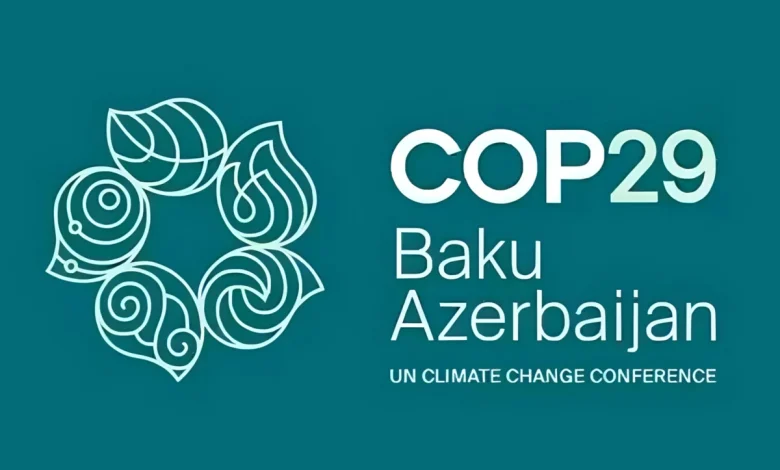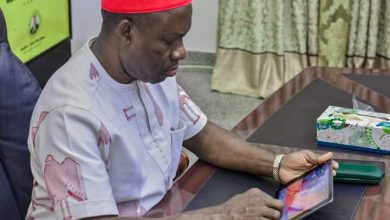
By Alfred Ajayi
“We need to unlock a new climate finance goal at COP29,” said UN Secretary-General António Guterres. Bolder new national climate plans, formally called Nationally Determined Contributions or NDCs, due in 2025, are vital to avert the worst impacts of the climate crisis hitting every economy,” says the United Nations Secretary General, Antonio Gutteres.
Undoubtedly, increasing financial commitments to climate change has never been more imperative than now when the most affected regions are equally bedevilled with nagging economic challenges making it more difficult for them to cope with the destructive impacts of climate change.
Climate finance for developing countries like Africa that contribute less than 4% to the global climate crisis, is a matter of justice as they suffer indescribably without resources to limit and adjust to the impacts of climate change. A decent life and survival is being steadily pushed beyond reach climate change undermines their rights to life and prosperity.
Most greenhouse gas emissions have come from wealthier countries, while poorer nations, with fewer factories, cars and household appliances burning fossil fuels, have historically emitted only a small share of the total. This reality saw the developed countries in 2009 agreeing to mobilize $100 billion a year for developing countries to adapt to climate change and cut greenhouse gas emissions. This included fund flowing through bilateral, regional and multilateral channels, as well private funds, through a variety of mechanisms, such as grants, loans and even insurance.
Sadly, it was only in 2022 that the developed countries met this goal for the first time, providing a total of $115.9 billion in climate finance for developing countries. Regrettably, only a paltry share of the total amount went to low-income countries while Africa got about a quarter of the total sum. Loans made up the largest funding category, mainly going to middle-income countries.
The European Union, EU, and its 27 member states remain the biggest providers of climate finance globally with €28.6 billion from public sources and an additional €7.2 billion in private finance to support developing countries in combating climate change and adapting to its impacts in 2023.
In order to deliver such funding, the COP 28 in Dubia, which marked the conclusion of the first ‘global stocktake’ of efforts to address climate change under the Paris Agreement, underscored the importance of reforming the multilateral financial architecture, scaling up climate finance through grants and concessional finance and accelerating the ongoing establishment of new and innovative sources of finance.
Acknowledging the hitherto slow progress across all areas of climate action – from reducing greenhouse gas emissions, and strengthening resilience to a changing climate, to getting the financial and technological support to vulnerable nations, countries decided to accelerate action across all areas by 2030.
COP 28 closed with an agreement that signals the “beginning of the end” of the fossil fuel era by laying the ground for a swift, just and equitable transition, underpinned by deep emissions cuts and scaled-up finance. It clearly points to the direction of travel in the energy transition, and that the scale and pace of change can’t be stopped or reversed. The agreement builds on the landmark decision a year earlier at COP 27 where nations agreed to set up a fund to support vulnerable countries and communities already experiencing the adverse impacts of climate change.
As COP29 gets underway in Baku, Azerbaijan, the climate summit is expected to decide the future of global climate finance. As developing nations demand $1 trillion in annual support, and tensions rising over who should contribute and how funds are allocated, the world waits to see if the on-going Baku summit dubbed the “climate finance COP,” will deliver on the promise of climate justice and equity.
The most important decision expected from COP 29 is an agreement on a New Collective Quantified Goal on climate finance (NCQG) starting in 2025 to replace the existing USD 100 billion annual target set in 2009, which had been popularly described as inadequate. The new commitment at Baku 2024 will also be the litmus test for whether the promise of the Paris Agreement can still be achieved.
COP 28 in Dubai sadly highlighted the insufficiency of current collective climate efforts. Therefore, the NCQG outcome in Baku – especially its quantum or scale, will send a strong message to developing countries, many of which are trapped in a vicious cycle of indebtedness and persistent poverty as they battle against ever more devastating climate impacts.
The extent they go in achieving their climate commitments and national climate action plans is a function of how much financial support they are able to draw from the developed nations.
Modalities for this international financial intervention by developed countries must shift from loan to grant-based assistance. Hitherto, a significant volume and proportion of public concessional finance directed at addressing climate challenges in Africa is being provided in the form of loans, which are to be repaid at lower-than-market rates and/or have longer maturity and grace periods, Africans should negotiate to achieve a primarily grant-based future financial aid.
The non-grant-based financing risks have continued to exacerbate national debt burdens that are already significant for many African countries. This also raises the question about who is ultimately paying for climate action in countries that contributed the least to the climate crisis.
The developed nations must deliver stronger political commitment, action and funding to address the adaptation gap, currently estimated to be between $194-366 billion per year. Adaptation is consistently sidelined and under-resourced, with 60% of international climate finance for mitigation.
The world and indeed Africa and Nigeria wait in eager anticipation of what the outcomes from COP 29 will be. However, Africa’s representatives must realize that they carry our collective destiny on their shoulders in Baku. As they brainstorm, they should always remember that climate finance is a matter of justice and not a request for charity.



